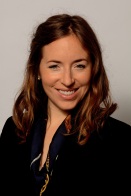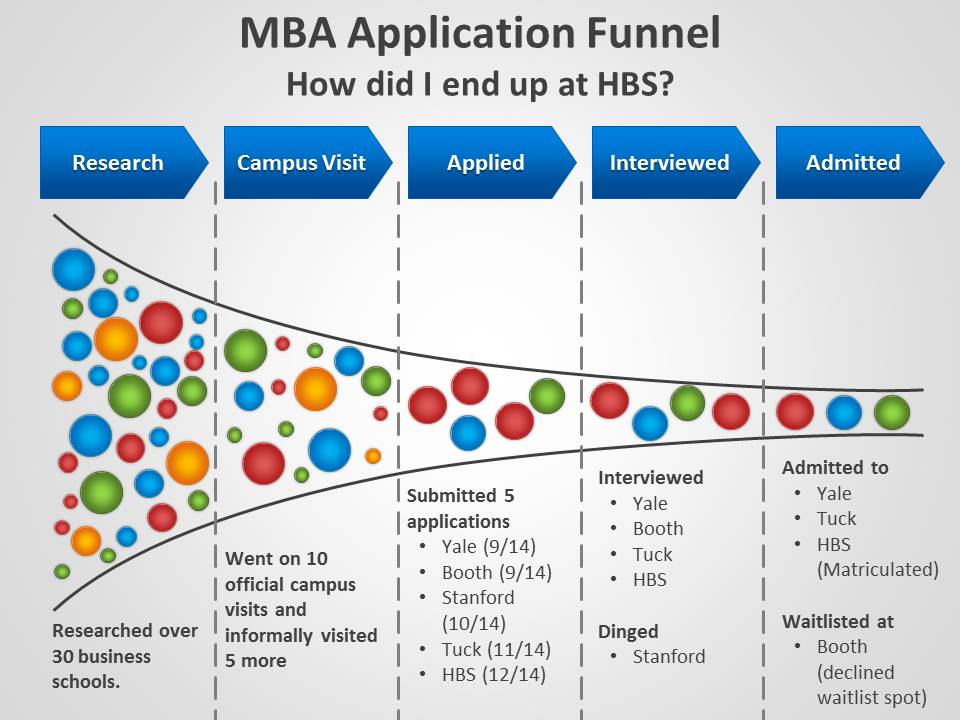It has been only three months since I graduated from Columbia Business School (CBS), but already I am homesick for the beautiful Upper West Side campus, days filled with executive guest lecturers, and nightly club events. For those in the midst of the application process, or those just considering a future MBA, I envy your position only in that you still have two great years ahead of you. Knowing the application process is a stressful time, I urge you to seek out as much advice as possible. Below is guidance I have given to other CBS hopefuls in the past (all of whom were accepted), built on my own experience, tips from classmates, and insight from alumni I consulted when applying to Columbia.
Know Your Story
If you have ever spoken to an admissions consultant (like HBS Accept), they will stress the importance of having a strong story that clearly ties together your background and career goals, and explains how Columbia can make that connection for you. For some applicants, this may come easily, but I spent hours poring over job descriptions, LinkedIn profiles, and interviews with people who held positions I thought I wanted one day. Doing this helped me to understand what certain career paths looked like, and what it would take to attain that dream job. Though at first it seemed overly prescriptive, having a specific goal in mind for both a five year and ten year plan made it all the easier to explain how I was going to get there.
One main benefit from this exercise is the ease at which you will be able to write your essays for Columbia. The first two questions ask about career goals, and they have respective limits of 50 characters and 500 words. To both stand out and paint a clear picture in 50 characters requires a firm understanding of one’s own future. These questions will come up in conversation during school visits and interviews, and the more defined the answer, the better prepared and knowledgeable you will appear. Additionally, though business school is a place to find yourself professionally, those two years fly by quickly; hit the ground running with a clear idea of where you want to go and what you need to get out of school.
Know the School
While it may seem obvious, it cannot be stressed enough how important it is to understand Columbia to the point that you feel as if you are already a student walking through campus. When I was applying, there were spots in the application to list which admissions events you had attended, names of faculty or staff you had met with, and current students or alumni you knew, not to mention if you were related to a CBS alumni. Business school is about networking, and the admissions team wants to see that you as an applicant have made the effort to learn as much as possible about Columbia and met people who understand the CBS experience well. Doing this will also shed light on which specific clubs, classes, and initiatives you should get involved with to further your career goals, should you be accepted. Many clubs have a Vice President of Prospective Students or Membership, and they are there to help answer questions about what the club provides in professional resources, and the leadership positions offered in the organization.
The city of New York is an integral part of the Columbia experience, and should be a reason why you are applying. Having completed my undergraduate in a college town, and then worked for four years in Chicago, I don’t believe I fully understood the benefits of attending business school in New York until I was here. C-suite executives are in class on a weekly basis, as a visit simply requires hopping in a cab outside their downtown office. Most students interested in a career in retail, venture capital, private equity, or at startups, have a part time internship during the school year. The abundance of networking and career-building events in the city is never ending. Simply put, Columbia thinks being in New York is amazing and believes you should share that enthusiasm to both get the most out of your two years, and to be an integral member of the CBS community.
Applying for business school can be stressful, but the professional and personal experience is well worth it. When in doubt, ask for help and seek out resources like HBS Accept that can provide opinions from those who have already beat a successful path. Best of luck!
Kendall Miller
Columbia MBA working at the intersection of strategic, creative, and operational roles and solutions. She is an avid traveler, design world enthusiast, and devoted NYC transplant. As a consultant for Fortune 100 companies, startups, and NGOs, she worked in strategy development, performance improvement, and business model design. Her interests lie in understanding where customer experience design and digital innovations can help companies grow and adapt. Kendall has recently returned to Deloitte Consulting where she is a Senior Strategy Consultant.



